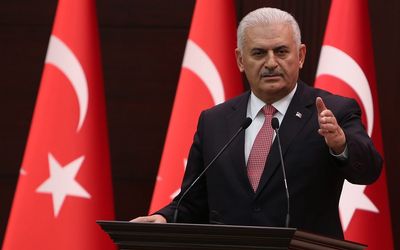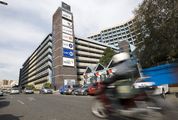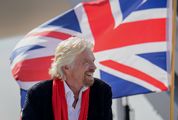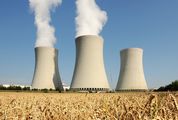Israel and Turkey restore ties in deal spurred by energy prospects
by Ercan Gurses and Jeffrey Heller
2016-06-27 17:41:05.0
ANKARA/JERUSALEM — Israel and Turkey announced on Monday they would normalise ties after a six-year rupture, a rare rapprochement in the divided Middle East driven by the prospect of lucrative Mediterranean gas deals as well as mutual fears over growing security risks.
Turkish Prime Minister Binali Yildirim said the two countries would exchange ambassadors as soon as possible.
The mending in relations between the once-firm allies after years of negotiations raises the prospect of eventual cooperation to exploit highly lucrative natural gas reserves under the eastern Mediterranean, officials have said.
Israeli Prime Minister Benjamin Netanyahu said it opened the way for possible Israeli gas supplies to Europe via Turkey. The move also comes as the Middle East is polarised by Syria’s civil war and as the rise of Islamic State threatens regional security, leaving both countries in need of new alliances.
Relations between Israel and what was once its only Muslim ally crumbled after Israeli marines stormed an aid ship in May 2010 to enforce a naval blockade of the Hamas-run Gaza Strip and killed 10 Turkish activists on board.
Speaking after meeting US Secretary of State John Kerry in Rome, Netanyahu said the agreement was an important step. "It has also immense implications for the Israeli economy, and I use that word advisedly," he said.
Kerry welcomed the deal, saying, "We are obviously pleased in the administration. This is a step we wanted to see happen."
Turkey expelled Israel’s ambassador and froze military cooperation after a 2011 UN report into the Israeli raid on the Mavi Marmara largely exonerated the Jewish state. Israel and North Atlantic Treaty Organisation member Turkey, which both border Syria, reduced intelligence sharing and cancelled joint military exercises.
Netanyahu made clear the naval blockade of Gaza, which Ankara had wanted lifted under the deal, would remain in force, although humanitarian aid could continue to be transferred to Gaza via Israeli ports.
"This is a supreme security interest of ours. I was not willing to compromise on it. This interest is essential to prevent the force-buildup by Hamas and it remains as has been and is," Netanyahu said.
But Yildirim said the "wholesale" blockade of Gaza was largely lifted under the deal, enabling Turkey to deliver humanitarian aid and other nonmilitary products.
A first shipment of 10,000 tonnes would be sent next Friday, he said, and work would begin immediately to tackle Gaza’s water and power supply crisis.
Turkish President Tayyip Erdogan spoke with Palestinian President Mahmoud Abbas by phone on Sunday night and told him the deal would improve the humanitarian situation in Gaza, sources said.
Energy Ties
Restoring relations with Ankara is a linchpin in Israel’s strategy to unlock its natural gas wealth. It is looking for export markets and is exploring a pipeline to Turkey as one option, both for consumers there and as a connection to Europe.
"This is a strategic matter for the state of Israel. This matter could not have been advanced without this agreement, and now we will take action to advance it," Netanyahu said.
Gas, he said, had the potential to strengthen Israel’s coffers "with a huge fortune".
Shares in Turkey’s Zorlu Energy, which has activities in Israel, rose 11% on news of the agreement. Israeli energy stocks also rose in Tel Aviv.
Separately on Monday the Kremlin in Moscow, Russia, said Erdogan had "apologised" to Russian leader Vladimir Putin over last year’s shooting down of a Russian air force jet by Turkey’s military, opening the way for Russia to lift economic sanctions.
The Russian jet was shot down, with the loss of the pilot, in November while it took part in the Kremlin’s military campaign in Syria. Ankara said it acted lawfully because the jet had crossed into Turkish air space, which Moscow denied.
Russia has said it would lift trade restrictions only if Turkey apologised for the downing of the jet.
A spokesman for Erdogan, Ibrahim Kalin, confirmed the letter was sent to Putin, though he did not refer explicitly to an apology. He said that Erdogan, in the letter, had expressed regret and asked the family of the pilot to "excuse us".
A man suspected of killing the Russian air force pilot was being prosecuted, a Turkish official added.
The Kremlin responded to the downing of the fighter jet by freezing work on a pipeline to ship Russian gas to Europe via Turkey, and advising Russian tourists to avoid Turkish resorts.
There was no word from the Russian authorities on Monday on ending the sanctions.
Reuters, AFP

Turkish Prime Minister Binali Yildirim addresses a press conference in Ankara, Turkey, on Monday. Turkey and Israel have repaired ties after a six-year conflict over the deaths of 10 pro-Palestinian Turkish activist. Turkey has also eased tensions with Moscow over the shooting down of a Russia fighter jet over its territory. Picture: EPA
ANKARA/JERUSALEM — Israel and Turkey announced on Monday they would normalise ties after a six-year rupture, a rare rapprochement in the divided Middle East driven by the prospect of lucrative Mediterranean gas deals as well as mutual fears over growing security risks.
Turkish Prime Minister Binali Yildirim said the two countries would exchange ambassadors as soon as possible.
The mending in relations between the once-firm allies after years of negotiations raises the prospect of eventual cooperation to exploit highly lucrative natural gas reserves under the eastern Mediterranean, officials have said.
Israeli Prime Minister Benjamin Netanyahu said it opened the way for possible Israeli gas supplies to Europe via Turkey. The move also comes as the Middle East is polarised by Syria’s civil war and as the rise of Islamic State threatens regional security, leaving both countries in need of new alliances.
Relations between Israel and what was once its only Muslim ally crumbled after Israeli marines stormed an aid ship in May 2010 to enforce a naval blockade of the Hamas-run Gaza Strip and killed 10 Turkish activists on board.
Speaking after meeting US Secretary of State John Kerry in Rome, Netanyahu said the agreement was an important step. "It has also immense implications for the Israeli economy, and I use that word advisedly," he said.
Kerry welcomed the deal, saying, "We are obviously pleased in the administration. This is a step we wanted to see happen."
Turkey expelled Israel’s ambassador and froze military cooperation after a 2011 UN report into the Israeli raid on the Mavi Marmara largely exonerated the Jewish state. Israel and North Atlantic Treaty Organisation member Turkey, which both border Syria, reduced intelligence sharing and cancelled joint military exercises.
Netanyahu made clear the naval blockade of Gaza, which Ankara had wanted lifted under the deal, would remain in force, although humanitarian aid could continue to be transferred to Gaza via Israeli ports.
"This is a supreme security interest of ours. I was not willing to compromise on it. This interest is essential to prevent the force-buildup by Hamas and it remains as has been and is," Netanyahu said.
But Yildirim said the "wholesale" blockade of Gaza was largely lifted under the deal, enabling Turkey to deliver humanitarian aid and other nonmilitary products.
A first shipment of 10,000 tonnes would be sent next Friday, he said, and work would begin immediately to tackle Gaza’s water and power supply crisis.
Turkish President Tayyip Erdogan spoke with Palestinian President Mahmoud Abbas by phone on Sunday night and told him the deal would improve the humanitarian situation in Gaza, sources said.
Energy Ties
Restoring relations with Ankara is a linchpin in Israel’s strategy to unlock its natural gas wealth. It is looking for export markets and is exploring a pipeline to Turkey as one option, both for consumers there and as a connection to Europe.
"This is a strategic matter for the state of Israel. This matter could not have been advanced without this agreement, and now we will take action to advance it," Netanyahu said.
Gas, he said, had the potential to strengthen Israel’s coffers "with a huge fortune".
Shares in Turkey’s Zorlu Energy, which has activities in Israel, rose 11% on news of the agreement. Israeli energy stocks also rose in Tel Aviv.
Separately on Monday the Kremlin in Moscow, Russia, said Erdogan had "apologised" to Russian leader Vladimir Putin over last year’s shooting down of a Russian air force jet by Turkey’s military, opening the way for Russia to lift economic sanctions.
The Russian jet was shot down, with the loss of the pilot, in November while it took part in the Kremlin’s military campaign in Syria. Ankara said it acted lawfully because the jet had crossed into Turkish air space, which Moscow denied.
Russia has said it would lift trade restrictions only if Turkey apologised for the downing of the jet.
A spokesman for Erdogan, Ibrahim Kalin, confirmed the letter was sent to Putin, though he did not refer explicitly to an apology. He said that Erdogan, in the letter, had expressed regret and asked the family of the pilot to "excuse us".
A man suspected of killing the Russian air force pilot was being prosecuted, a Turkish official added.
The Kremlin responded to the downing of the fighter jet by freezing work on a pipeline to ship Russian gas to Europe via Turkey, and advising Russian tourists to avoid Turkish resorts.
There was no word from the Russian authorities on Monday on ending the sanctions.
Reuters, AFP


















